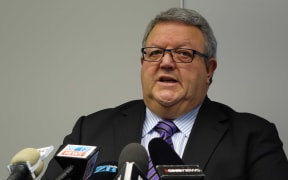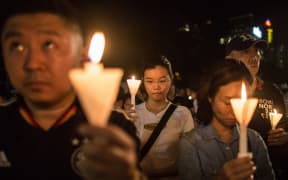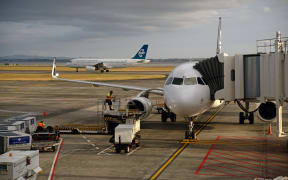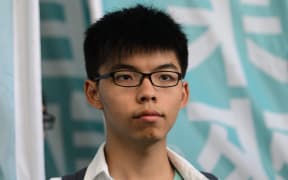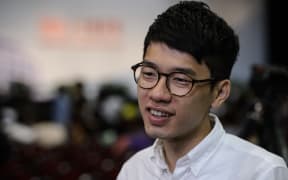Deputy Prime Minister Bill English has cancelled a meeting with two prominent Hong Kong pro-democracy figures this week in an apparent snub.
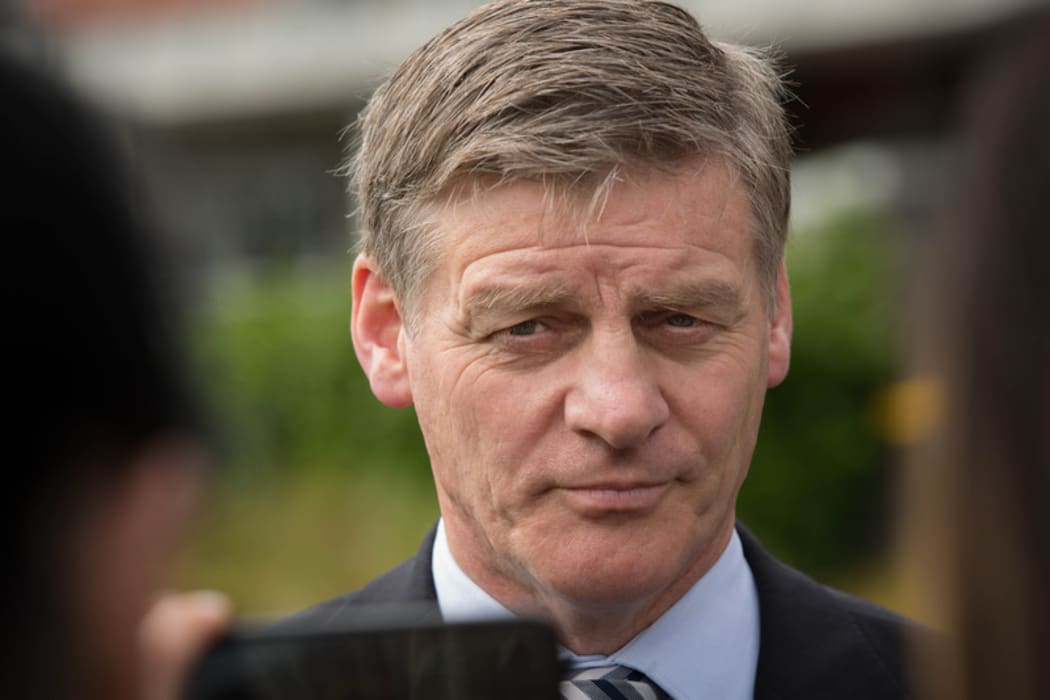
Photo: RNZ / Cole Eastham-Farrelly
Anson Chan was the head of the Hong Kong Civil service during the Island's transition from British to Chinese control.
She and political activist Martin Lee arrived in New Zealand this week after meeting with senior Australian Government figures to discuss support for democracy in the former British colony.
However, on Monday night, Mr English cancelled the Tuesday morning meeting he had agreed with the pair.
Mr English's office did not accept an offer to reschedule a meeting any time in the following week.
Mr Lee said it was odd that Mr English cancelled the meeting.
"Not only did we not have a meeting with the deputy prime minister, we did not have a meeting with any government minister, any member of the Naitonal party, but we had a meeting with the Green Party - Mr Kennedy Graham - and Mr David Shearer, the Labour Party spokesman on foreign affairs.
"In Australia we saw Julie Bishop, the foreign affairs minister, and then the attorney general, senator George Brandis, and then Anson Chan and I actually appeared before the joint parliamentary committee on foreign affairs. And in New Zealand, none of that kind."
Last time the group had visited the United States, they had met with Vice President Joe Biden, Mr Lee said.
He said, though, that whenever he travelled outside Hong Kong, Chinese embassies worked very hard behind the scenes to persuade people not to talk to him.
Australian National University emeritus professor Geremie Barme said it was likely the Chinese ambassador in New Zealand had put pressure on the government not to meet with Ms Chan and Mr Lee.
Mr Barme said it was a depressing development for New Zealand given the pair met with top Australian government officials, including the foreign minister.
It came a week after it emerged Defence Minister Gerry Brownlee had made comments over the South China Sea dispute at a forum in Beijing.
Mr Brownlee denied reports he had been rebuked by China over the comments.
In February, New Zealand urged Chinese restraint after Beijing's apparent deployment of an advanced missile system on a South China Sea island, while Beijing said New Zealand's proposal was "unconstructive".
Mr Lee said his group's message to the Australian politicians, and what they would have told Mr English, was that China had reneged on its promise of democracy to Hong Kong.
It was in New Zealand and Australia's best interests to make sure any agreement with China would be honoured, he said.
"Because without democracy Hong Kong people cannot be masters of our own house as promised," he said.
A spokeswoman for Mr English told RNZ on Tuesday that no meeting with Anson Chan or Mr Lee was ever agreed. However, she said yesterday that she had been mistaken and acknowledged there was a scheduled meeting with the pair and it was cancelled.
Mr Lee said the way to deal with China was not to come to them on your knees.
"Because if you're on your knees, that's not good enough, they want you to kowtow next. And so the realistic way of dealing with China is to stand firm on principles, and in fact the Chinese government will respect you for that. They may not like it, but they will respect you for that."
Mr Barme said it was a slippery slope if New Zealand started giving in to China's demands on minor things like this.
Mr English declined RNZ's request for an interview.
